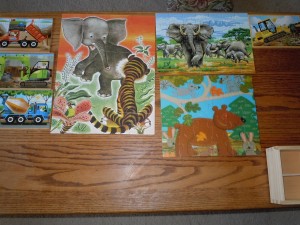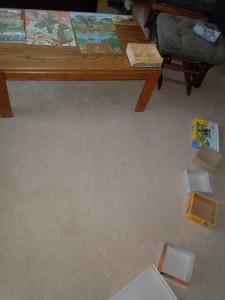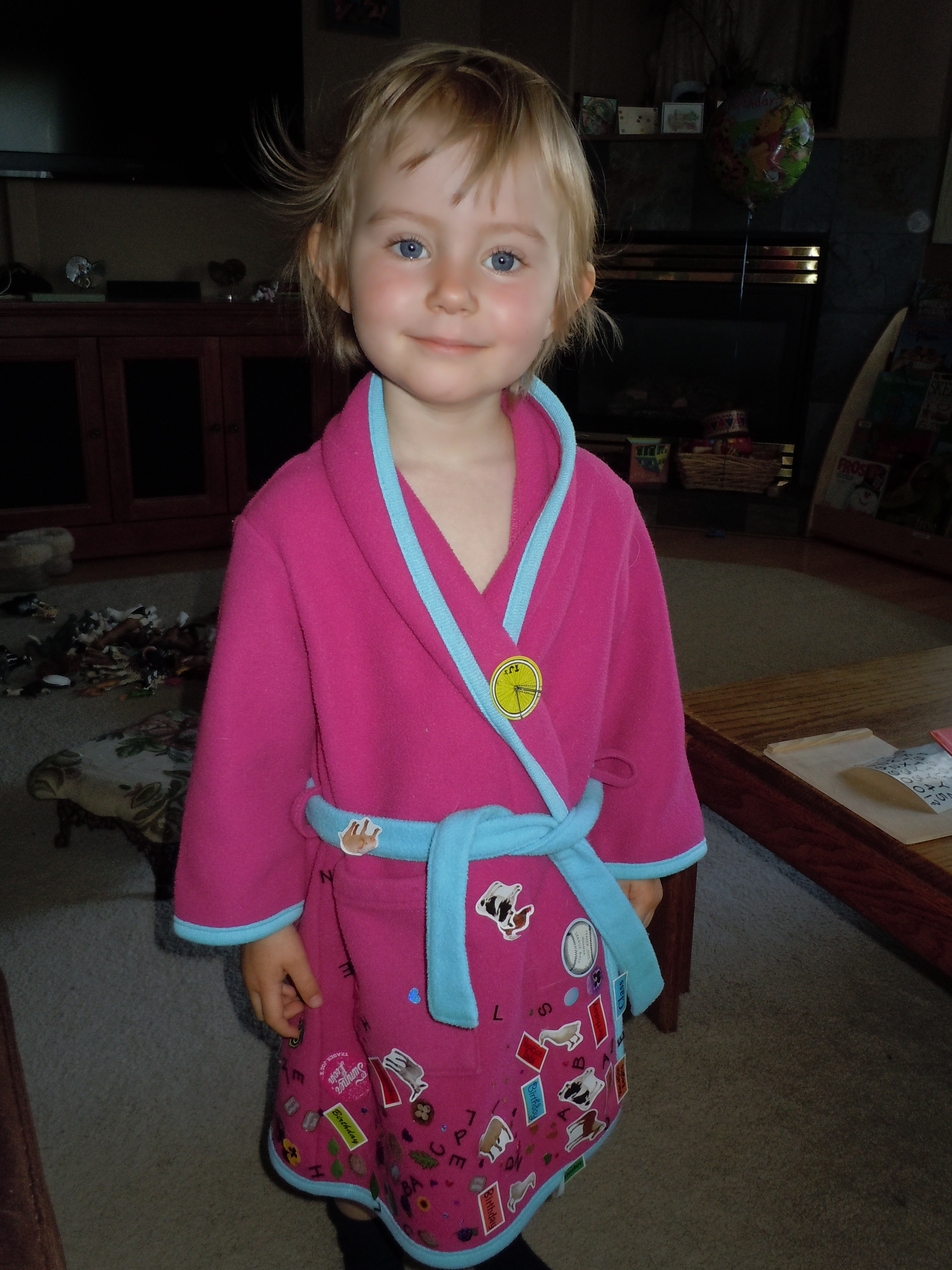The way to help children improve their attention span is counter-intuitive. You might think that giving children tasks that require their continued attention would help. Or maybe challenging them to accomplish long and complex sequences will help memory and cognition, improving attention span. But the current research is showing something counter to what we might think.
In fact, research shows that allowing kids to have unstructured playtime can actually improve their ability to focus on a task. In the book “Nurture Shock” by Po Bronson I learned about a kindergarten program which encourages children to choose a character to play in an imaginary play scenario that lasts for several hours. Researchers found that the children who were able to remain in character did better on later academic tests than children who were taught their letters and numbers instead of engaging in imaginary play.
The real take away here is that imaginary play and unstructured playtime are tools that children use to learn real life skills that will benefit them forever. It might seem like “child’s play” to us, but to them, this type of play involves acting out potential scenarios, doing scientific experiments, and using critical thinking skills.
So what’s the secret to improving your child’s attention span?
Offering them big chunks of unstructured time to explore their own interests and engage in imaginary play.
Our daughter Julia wakes up at about 6:30am every day of the week and lately I’ve been helping her get to the bathroom and then climbing back into bed with my husband on the weekends. For several weekends in a row Julia has happily played by herself and allowed us to sleep in.
One morning she found the box of stickers and this is what she did:


I was impressed and here’s why. Not only did she use her fine motor skills to get each of the tiny stickers off of the sticker paper and on to her robe independently. She focused on this task for well over an hour without interruption. She put over a hundred stickers on her robe one by one. And she’s not yet three years old. I think we’re on our way to a very well developed attention span!
The following weekend she impressed me even more. Here’s what she did while we slept:


I love the way that she displayed her finished puzzles and the fact that she also lined the boxes up on the floor was interesting too. And just for the record, this is four 12 piece puzzles, two 24 piece puzzles and a 35 piece puzzle. And she didn’t wake us up for help even once.
So what does your child like to do when given uninterrupted alone time?
When Julia was smaller she would spend up to an hour looking at books in her bedroom. Sure there was a huge pile of books on the floor afterward, but she had entertained herself for an hour…with books! And we did work on putting them away together, so now, she happily puts away most anything she plays with.
Just a quick disclaimer here, safety is very important any time you’re allowing young children to have time alone without direct supervision.
Please make sure that the environment is free of hazards whenever you leave your child alone.
There’s one more secret to helping your child expand his attention span, remembering not to interrupt his work. Again, while it might just seem like meaningless play to us, children are engaged in the work of becoming the adults they hope to be. When we remember to respect their time and attention by refusing to interrupt when they’re engaged or by simply waiting for them to approach us, we’re helping them learn more independence and encouraging their natural urge to go deeply into the subject at hand.
If every time a child becomes engrossed in something he gets interrupted and asked to do something else instead, he’s not as likely to develop a deep and long lasting desire to dive in to his own interests. Instead, he may become overly attuned to the needs and desires of the people around him, believing that it’s more important to do what others require of us than it is to develop our own driving interests.
Oh, one more thing I forgot to mention, screen time does NOT count as independent play. In fact, excessive screen time has been linked to shorter attention spans and an inability to focus on real world tasks. So, if you’re in the habit of using the screen to get some time to yourself, I hope you’ll consider some other options.
So this week your challenge, if you choose to accept it, is to allow your kids to have some extra alone time, unstructured playtime, and wide swaths of time when they’re not interrupted. You might be as surprised by the results as I was when I woke up to that table full of puzzles.
Have a great week, Shelly



My 4 year old is so funny. I have given him a bunch of crayons because he loves to peel off the wrappers. He would do it for an hour, I think. Our children would probably get along! 🙂
orangeRcarrots That sounds like a great way to improve fine motor skills! Maybe you should give him a pile and see how long he can focus on the task. I love imagining our kids side by side, each focused on their own work. I think you’re right, they’d get along great!
Wow, I am so impressed. My son still comes and wakes us up every morning to get us out of bed with the usual “I’m hungry. Let’s go downstairs.” There have been some days lately when he hears his little sister wake up and goes in there to get her and then sits in his bed with her to read books. Very cute!!! A lot of the time, though, my son who is 4 asks me to do everything with him. My 2 year old seems more independent.
Katica I hear you. There is definitely a personality factor going on there. My daughter has always enjoyed time alone and we’ve encouraged it since she was an infant. I do think that there are things you can do to encourage your 4yo to be more independent, and it sounds like your 2yo is naturally headed in that direction. Awesome!
I’m curious, how would YOU like your mornings to go? Is there a way you could set your 4yo up for independent activities or a snack first thing so that you can enjoy a leisurely morning once in a while? Sending you warm hugs, Shelly